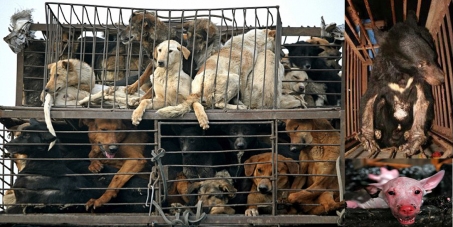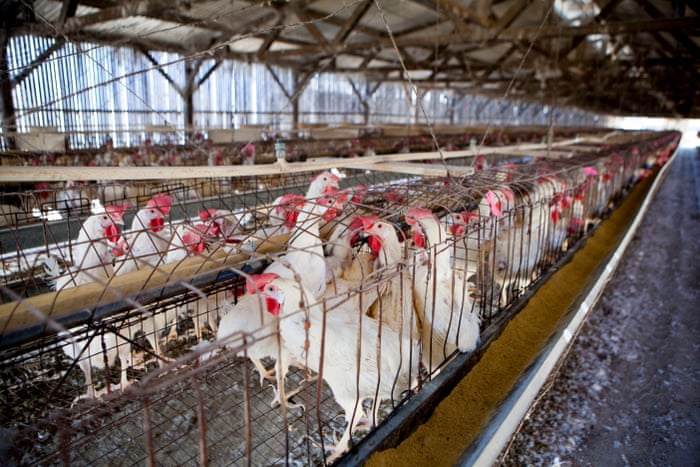COVID 19 has taken the world by storm. Many theories claim it came about due to Chinese people eating bats, others say it was pangolins.
As of April 13th 2020, the world statistics for coronavirus are 1,867,129 cases, 115,278 deaths and 434,098 recovered. The question is that was this coronavirus preventable through lifestyle choices such as diet?
Figures from the Food and Agriculture Organisation of the United Nations, state that in 2018, each person consumed 120kg of meat on average, making the US the highest meat consuming country in the world.
The demand for meat has drastically increased which has come at a dire cost for the human population. Diabetes, cancer, heart disease are some of the health conditions associated with overconsumption of meat.
MadCow disease, Salmonella, E. Coli & Bird Flu are some of the zoonotic diseases that have also plagued the planet. The latest being COVID 19, supposedly due to pangolins and bats being eaten.
Is COVID 19 from Bats or Pangolins?
It was first believed that the virus spread through individuals in China eating bats, but other research suggests it spread through pangolins. Another theory was it began in Wuhan seafood market. Either way, wet markets have long been a cause of respiratory issues.

Pangolins are mammals, mistaken for reptiles, “the worlds most trafficked mammal” due to the folklore that they are good for medicinal purposes.
A pangolin is a mammal covered in scales that are often mistaken for a reptile. It is one of the most trafficked animals across Asia and Africa. More information on the pangolin can be found via this link @worldwildlife.org.
Due to the coronavirus, Gabon (Central Africa) on Friday banned the eating and sale of bats and pangolins, they are highly prized in traditional medicine in China. At the time of writing, Gabon has declared 21 COVID-19 infections.
According to the Mail on Sunday:
“The Wuhan laboratory at the centre of scrutiny over the pandemic has been carrying out research on bats from the cave which scientists believe is the original source of COVID 19.
The Mail on Sunday obtained documented showing the Wuhan Institute of Virology undertook coronavirus experiments on mammals captured more than 1,000 miles away in Yunnan – funded by a $3.7 million grant from the US government. The Sequencing of the COVID-19 genome has traced it to bats found in Yunnan’s caves.”
There is a common denominator, the eating and trading of meat, wild or factory farmed, which has once again spread to the wider human population. In a vegan world, some would argue this is something we would not have to worry about.
Veganism is the uncertain future
Veganism is the practice of abstaining from or avoiding eating meat or using animal products.
The vegan population has massively grown throughout the years, by 350% over the last ten years for good reason, people have become more conscious consumers. Food is no longer just “food”, it is one of the biggest drivers to climate change.

“Many devastating disease outbreaks come about because humans house animals in filthy, severely crowded farms and markets – breeding grounds for pathogens – in order to satisfy their meat habit.” Elisa Allen Director of People for the Ethical Treatment of Animals (PETA)
A list created by the government shows all the zoonotic diseases, to see the impact humans and their consumption of meat has had on the human population and on the planet. ranging from Avian Influenza, Salmonella and Lyme Disease.
Individuals in the UK point their finger at China and other countries, which has spiked the racism against the chinese population or anyone with asian phenotypes.
Twitter user @Lokendra Jangid tweeted “Chinese people are not humans they are evil who is eating bats ,cats, rats, craps, and all wilds life species. Trading human organ and much inhumane activity only exists in China.“
I think what many people forget alongside @Lokendra Jangid, that other countries house diseases that have severely crippled the world. Such as Mexico where swine flu originated, hundreds of sick pigs died on a massive farm in 2009 just before swine flu spread to humans. It became known as swine flu because it’s similar to flu viruses that affect pigs.
(E. coli) originated from the United States and each year causes an estimated 73,000 cases of infection and 61 deaths.
There are disease-ridden animal factories across the globe not just in China, including us here on British home soil, such as foot and mouth disease in 2001. The highly infectious disease affected cattle, pigs, sheep and goats.
Yet the British public believe their eating habits to be superior.
Yulin Dog Meat festival

The Yulin “Lychee and Dog Meat” festival is an annual 10-day event running from 21st June to 30th June where over 10,00 dogs are eaten, and cats also. Taking place in Yulin, a city in the Guangxi province of China.
Dog eating is traditional in China, and according to folklore eating the meat during the summer months brings luck and good health. Some also believe dog meat can ward off diseases and heighten men’s sexual performance.

In the Western world where dogs are man’s best friend, this is seen as abhorrent, gross and horrible. Whereas when you think of it, dogs in the UK have a cultural and emotional value that in China they render insignificant.
Figures as recent as 18th March 2020 published by the Office for National Statistics revealed that spending on pets and related products reached an annual value of 4.94 million British pounds in 2018. A increase from 3 million British pounds since 2009. They do say put your money where your mouth is.
Antibiotic Resistant Diseases
To ensure high welfare standards in farming, the animals such as cows, chicken and pig are injected with antibiotics. However, antibiotics have become more powerful over time as viruses and diseases have become resistant to the antibiotics.
In 2019 an article by the independent uncovered that antibiotics were being used in chicken farms,

BBC One’s Countryfile reported in 2019 that 281 tonnes of antibiotics known as ionophores were sold in the UK in 2017. Ionophores are used to prevent the intestinal disease coccidiosis which affects chickens when they ingest chicken droppings.
Antimicrobial resistance (AMR) campaigners argue ionophores pose a risk to human health and the environment.
“Salmonella and Campylobacter, two of the many bacteria transmitted commonly through food, cause an estimated 660,900 antibiotic-resistant infections in the United States each year.”
If chickens perhaps were not kept in such horrid conditions, or even further not kept in cages, the human population would not have to worry about drug-resistant bacteria. To keep animals in such environments they must be pumped with antibiotics to reduce deaths of the livestock. A loss in livestock is a loss in profit which in turn is chicken that does no end up on your plate.
It’s an uncertain future
This is our future, the corona is the present, but for those who are conscious of the future is an illness away. Drug-resistant bacteria are a very real threat, and even the most immediate advancements in science may not be prepared as COVID 19 has unearthed.
Arguing on the basis of principle, meat is meat, regardless of its emotional, cultural or mental value. China does not hold the monopoly on cultural practices we do not agree with, neither are we more morally superior because we do not practice eating dogs and they do. In France, they eat snails otherwise known as “Escargot”, which is a delicacy there, but foreign in the UK.
The vegan diet is not perfect by any means but it will significantly reduce your carbon footprint. The vegan message has many facets one being to save the environment, prevent zoonotic and lifestyle-related diseases or the very argument that animals are sentient beings. In an ideal world being vegan could prevent a large majority of diseases to prevent that have occurred, COVID 19 reminds us of that. Wherever we are in the world a diet that reduces animals consumption can help us all.
For now admittedly we must focus on Coronavirus, but it came about due to one thing animals and eating them. the future may seem uncertain, but it is certain zoonotic diseases are here to stay.
In the meantime Stay Home Save Lives.


